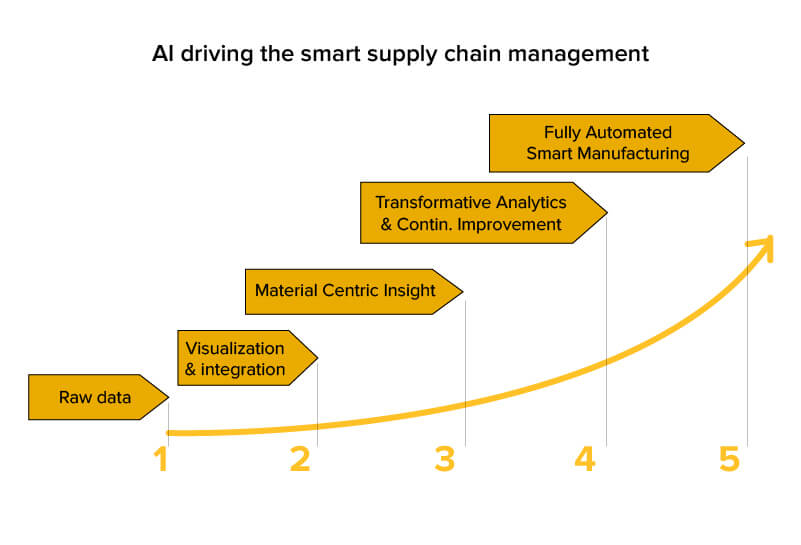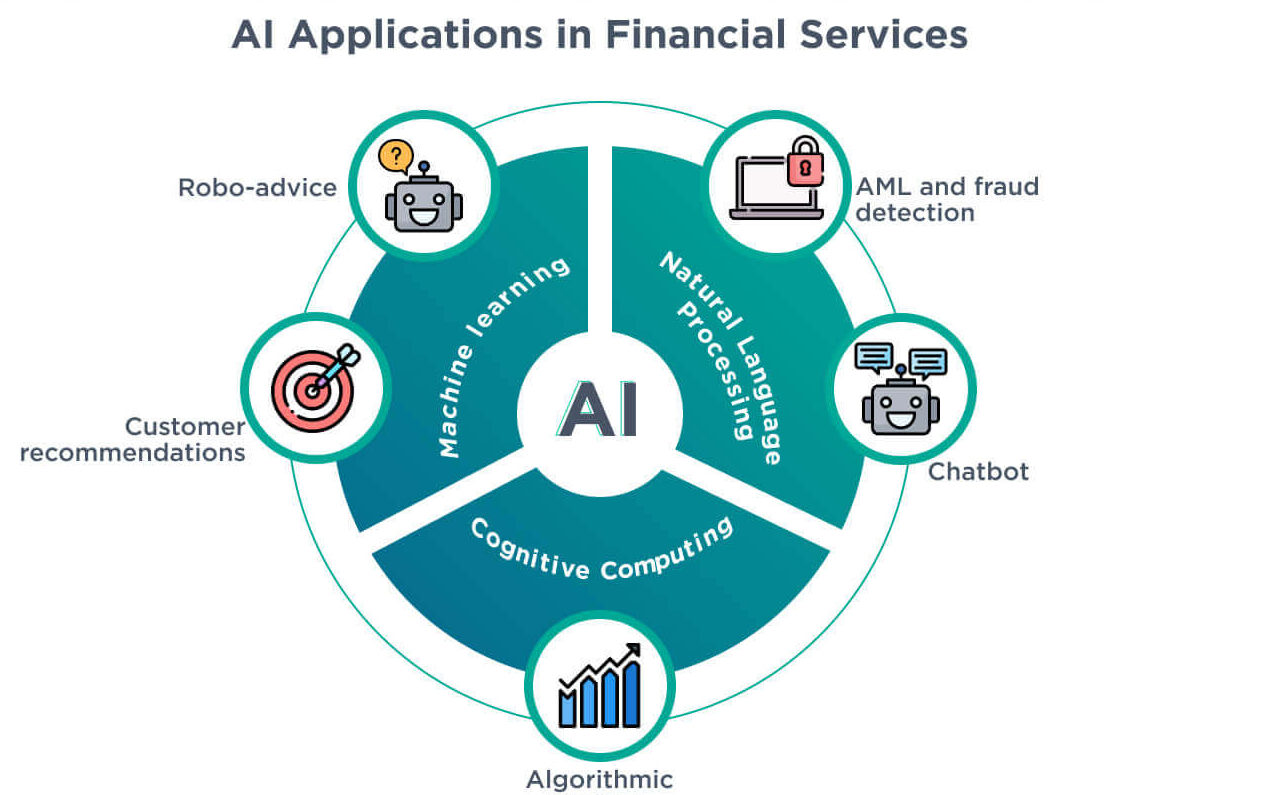AI, or artificial intelligence, is a field of computer science that involves the development of computer systems that can perform tasks that would typically require human intelligence. AI includes a range of technologies such as machine learning, natural language processing, computer vision, and robotics.
AI has become increasingly important in recent years due to the rise of big data and the need for businesses to analyze and make sense of large amounts of data quickly and efficiently. AI has the potential to transform industries by enabling businesses to automate tasks, improve decision-making processes, and increase productivity.
AI has a huge potential for making money in various ways. Here are some of the most promising areas:
- Automation: AI can automate many tasks that were previously done by humans, leading to increased efficiency and cost savings. For example, customer service chatbots can handle routine inquiries, freeing up human representatives to focus on more complex issues.
- Predictive analytics: AI can analyze large amounts of data to identify patterns and trends, helping businesses make more informed decisions. For example, predictive analytics can be used to identify which products or services are most likely to be popular among customers.
- Personalization: AI can analyze customer data to create personalized experiences, such as personalized product recommendations or targeted marketing campaigns.
- Image and speech recognition: AI can be used to develop image and speech recognition technologies, which have a wide range of applications in areas such as security, healthcare, and entertainment.
- Autonomous vehicles: AI can be used to develop autonomous vehicles, which have the potential to revolutionize the transportation industry and generate significant revenue.
- Fraud detection: AI can be used to detect fraudulent activity, such as credit card fraud or insurance fraud, helping businesses save money by preventing losses.
AI-powered Business Ideas
Some business ideas that leverage AI to make money, such as:
- AI-powered chatbots for customer service
- AI-driven content creation and curation
- AI-powered predictive analytics for marketing and sales
- AI-based fraud detection and prevention
- AI-powered personalized recommendations and search
- AI-driven inventory management and supply chain optimization
- AI-powered medical diagnosis and treatment recommendations
- AI-driven financial and investment analysis
- AI-based cybersecurity and threat detection
1. AI-powered chatbots for customer service

AI-powered chatbots for customer service have become increasingly popular as businesses seek to improve their customer experience while reducing costs. These chatbots are designed to provide quick and accurate responses to customer inquiries and support requests, allowing businesses to handle a larger volume of customer interactions without the need for additional staff.
AI-powered chatbots can also be used to gather information about customer preferences and behaviors, which can be used to personalize future interactions and marketing efforts. This can lead to increased customer loyalty and higher conversion rates.
One example of a company using AI-powered chatbots for customer service is Bank of America. The bank’s virtual assistant, Erica, is available to customers 24/7 and can answer questions about account balances, transactions, and even provide financial advice. Erica uses natural language processing to understand customer inquiries and respond with relevant information.
Another example is H&M, which uses an AI-powered chatbot to provide personalized fashion recommendations to customers based on their preferences and past purchases. The chatbot also handles customer support inquiries and can provide information on order status and returns.
2. AI-powered predictive analytics for marketing and sales

AI-powered predictive analytics is a powerful tool that businesses can use to make better decisions in marketing and sales. By analyzing large volumes of customer data, AI can provide insights that help businesses optimize their marketing campaigns and increase their sales revenue. Here are some examples of how AI-powered predictive analytics can be used in marketing and sales:
- Personalization: AI can analyze customer data to predict their preferences and behavior, allowing businesses to create personalized marketing messages and offers that are more likely to resonate with their customers.
- Lead scoring: AI can help businesses identify the most promising leads by analyzing data on customer behavior, engagement, and demographics. This can help businesses prioritize their sales efforts and increase their conversion rates.
- Churn prediction: AI can analyze customer data to identify those who are at risk of leaving, allowing businesses to take proactive measures to retain them.
- Price optimization: AI can analyze data on customer behavior and competitor prices to help businesses optimize their pricing strategies and increase their sales revenue.
- Sales forecasting: AI can analyze past sales data and market trends to predict future sales, helping businesses make informed decisions about inventory management and resource allocation.
3. AI-based fraud detection and prevention
AI-based fraud detection and prevention is another potential area for businesses to make money. With the rise of digital transactions, fraud has become a major concern for companies across all industries. AI can help businesses detect and prevent fraud by analyzing large amounts of data and identifying patterns and anomalies that indicate fraudulent activity. AI-based fraud detection and prevention can be applied to various areas such as credit card fraud, insurance fraud, and identity theft.
One example of an AI-powered fraud detection system is Feedzai, which uses machine learning algorithms to analyze large amounts of data and detect fraudulent transactions in real-time. The system can be customized to specific industries and is used by major banks and financial institutions to prevent fraud.
By offering AI-based fraud detection and prevention services, businesses can not only prevent financial losses but also build trust with their customers by demonstrating a commitment to security and privacy.
4. AI-powered personalized recommendations and search

One of the most common applications of AI in the business world is in providing personalized recommendations and search results. AI-powered recommendation engines can analyze large amounts of data on customer behavior, preferences, and history to provide highly targeted product or content recommendations.
For example, streaming services like Netflix and Spotify use AI algorithms to suggest movies, TV shows, and music to their users based on their viewing and listening habits. E-commerce platforms like Amazon use AI to recommend products to their customers based on their browsing and purchase history.
Similarly, AI-powered search engines can deliver highly relevant search results based on a user’s search history, location, and other contextual information. For example, Google’s search engine uses AI to understand user queries and provide highly relevant search results.
By providing personalized recommendations and search results, businesses can improve the customer experience and drive sales by increasing engagement and customer loyalty.
5. AI-driven inventory management and supply chain optimization

AI-driven inventory management and supply chain optimization is another potential business idea that can help companies save money and increase efficiency. By utilizing AI algorithms and machine learning, companies can predict demand more accurately, optimize inventory levels, and reduce waste.
AI can help businesses identify patterns in demand and supply chain data, which can be used to make better inventory management decisions. This can lead to reduced inventory carrying costs, more accurate demand forecasting, and reduced stockouts. Additionally, AI can help optimize supply chain logistics by identifying the most efficient routes and transportation methods, reducing shipping costs and improving delivery times.
6. AI-powered medical diagnosis and treatment recommendations

AI-powered medical diagnosis and treatment recommendations are another area where businesses can make money. With AI algorithms and machine learning, healthcare providers can analyze vast amounts of medical data, from medical imaging to electronic health records, to assist with diagnosis and treatment recommendations.
One example of this is the AI-powered medical diagnostic tool developed by IDx, which uses deep learning to analyze retinal images and diagnose diabetic retinopathy, a common cause of blindness. Another example is IBM Watson for Oncology, which uses AI to assist with cancer diagnosis and treatment recommendations.
By utilizing AI for medical diagnosis and treatment recommendations, healthcare providers can improve patient outcomes, reduce costs, and increase efficiency. This can also provide a competitive advantage for healthcare businesses that adopt this technology.
7. AI-driven financial and investment analysis

Artificial intelligence (AI) can help businesses in the financial industry to analyze large amounts of data and make better investment decisions. Here are some ways AI can be used for financial and investment analysis:
- Risk assessment: AI can be used to analyze large amounts of data to identify potential risks in financial markets, such as market fluctuations and changes in regulations. By identifying potential risks, financial institutions can adjust their investment strategies to minimize the impact of those risks.
- Fraud detection: AI can be used to analyze financial data to identify fraudulent transactions, such as unauthorized withdrawals or fraudulent insurance claims. This can help financial institutions to prevent financial losses and maintain the integrity of their services.
- Trading algorithms: AI can be used to develop trading algorithms that can analyze market data in real-time and execute trades automatically. This can help financial institutions to make faster and more accurate trades, while reducing the risk of human error.
- Portfolio optimization: AI can be used to analyze investment portfolios and recommend changes based on market trends and risk factors. This can help financial institutions to optimize their investment strategies and maximize returns.
- Customer insights: AI can be used to analyze customer data, such as transaction history and online behavior, to gain insights into customer preferences and behavior. This can help financial institutions to tailor their services to meet the specific needs and preferences of their customers.
8. AI-based cybersecurity and threat detection

AI-based cybersecurity and threat detection involves using machine learning and artificial intelligence algorithms to identify, detect, and prevent cyber attacks and security threats. With the increasing number of data breaches and cyber attacks, cybersecurity has become a top priority for businesses across all industries.
AI-based cybersecurity solutions can help companies identify and respond to security threats in real-time, reducing the risk of data breaches and other cyber attacks. These tools use machine learning algorithms to analyze vast amounts of data and detect patterns that may indicate a potential security threat.
For example, AI-based cybersecurity tools can monitor network traffic and detect anomalies or suspicious behavior, such as unusual login attempts or unauthorized access attempts. These tools can also identify malware and other types of malicious software and block them before they can cause any damage.
In addition, AI-based cybersecurity tools can help companies respond to security incidents more quickly and effectively. These tools can provide real-time alerts and automate the incident response process, allowing companies to quickly isolate and contain any security threats.
Examples and case studies of successful AI-powered businesses
Here are some examples of successful AI-powered businesses:
- Amazon: Amazon is one of the largest online retailers in the world, and it uses AI extensively to provide personalized product recommendations to its customers, optimize its supply chain and logistics, and improve its customer service through chatbots and voice assistants.
- Spotify: Spotify is a popular music streaming service that uses AI to power its music recommendation engine. The platform uses machine learning algorithms to analyze user listening habits, search queries, and playlist data to create personalized music recommendations for each user.
- ZestFinance: ZestFinance is a fintech company that uses AI to help lenders make better credit decisions. The company’s AI algorithms analyze a wide range of data points to determine a borrower’s creditworthiness, including employment history, income, and financial behavior.
- IBM Watson Health: IBM Watson Health is a division of IBM that uses AI to improve healthcare outcomes. The company’s AI-powered solutions include medical imaging analysis, drug discovery, and personalized treatment recommendations based on patient data.
- Cognitivescale: Cognitivescale is an AI-powered software company that provides enterprise solutions for businesses across a variety of industries, including finance, healthcare, and retail. The company’s AI-powered software automates complex business processes, improves decision-making, and enhances customer experiences.
These are just a few examples of successful AI-powered businesses. As the technology continues to evolve, we can expect to see even more innovative AI solutions that transform the way businesses operate and make money.
Monetizing AI Technologies

Businesses can monetize their AI technologies ln Various ways, Such As:
- Licensing AI algorithms and models
- Selling AI-powered products and services
- Offering AI consulting and implementation services
- Partnering with other businesses to use their AI technologies
1. Licensing AI algorithms and models
One potential way to make money with AI is by licensing AI algorithms and models. Many companies and individuals are willing to pay for access to advanced AI algorithms and models that can help them solve complex problems, make predictions, or automate tasks.
For example, a company could license an AI-powered fraud detection algorithm to help them identify and prevent fraudulent activity in their business. Alternatively, a startup could license a natural language processing (NLP) model to create a new chatbot or voice assistant product.
There are many platforms and marketplaces that enable the licensing of AI algorithms and models. These platforms allow developers to sell or license their algorithms to other companies or individuals who need access to AI technology.
One example of such a platform is Algorithmia, which hosts a marketplace for machine learning algorithms and models. Another example is Hugging Face, which provides access to pre-trained models for NLP and other AI applications.
2. Selling AI-powered products and services
Selling AI-powered products and services is another way to make money with AI. Here are some examples:
- AI-powered virtual assistants: Companies can develop and sell virtual assistants that use natural language processing and machine learning to interact with customers and provide personalized recommendations and support.
- AI-based predictive maintenance: Companies can develop and sell AI-powered software that uses sensor data and machine learning algorithms to predict when machines will fail, enabling businesses to perform maintenance before costly breakdowns occur.
- AI-based content creation: Companies can develop and sell AI-powered software that automatically generates content such as articles, blog posts, and social media posts based on user preferences and trends.
- AI-powered e-commerce: Companies can develop and sell AI-powered e-commerce platforms that use machine learning algorithms to provide personalized product recommendations and optimize pricing strategies.
- AI-based medical imaging analysis: Companies can develop and sell AI-powered software that analyzes medical images to assist doctors in diagnosis and treatment decisions.
- AI-powered fraud detection and prevention: Companies can develop and sell AI-powered software that detects and prevents fraud in financial transactions, insurance claims, and other areas.
3. Offering AI consulting and implementation services
Offering AI consulting and implementation services can be a lucrative business idea for those with expertise in the field. Here are some ways to make money in this area:
- Consulting: As an AI consultant, you can help businesses identify areas where AI can be applied to improve their operations. This may involve identifying data sources, assessing the quality of data, developing algorithms, and evaluating the effectiveness of AI models.
- Implementation: You can also offer services to implement AI solutions for businesses. This may involve developing custom algorithms or implementing pre-built AI solutions, integrating AI into existing systems, and training employees to use AI tools.
- Training and education: As AI adoption becomes more widespread, there is a growing demand for professionals with the skills to develop and implement AI solutions. You can offer training and education services to individuals or businesses looking to learn more about AI.
- Maintenance and support: Once an AI solution has been implemented, ongoing maintenance and support may be required to ensure it continues to function properly. You can offer services to provide ongoing support, including troubleshooting, updates, and maintenance.
- Partnerships: Partnering with AI technology providers can also be a way to offer consulting and implementation services. By working with technology providers, you can offer custom solutions and support services to businesses looking to adopt AI.
Some successful examples of AI consulting and implementation services companies include Deloitte, Accenture, and PwC. These companies provide a range of services, including AI strategy consulting, data management and governance, and AI implementation and integration services.
4. Partnering with other businesses to use their AI technologies
Partnering with other businesses to use their AI technologies can be another way to make money with AI. By leveraging the expertise and resources of other companies, businesses can gain access to advanced AI technologies and tools that they may not have the resources to develop on their own. This can include using third-party AI algorithms and models, or partnering with AI-focused companies to co-develop and implement AI solutions.
For example, in the healthcare industry, pharmaceutical companies may partner with AI-focused startups to develop and implement AI-powered drug discovery platforms. By leveraging the AI expertise of the startup, the pharmaceutical company can speed up the drug discovery process and potentially discover new treatments and cures faster.
Another example is in the financial industry, where banks may partner with fintech startups to develop and implement AI-powered fraud detection and prevention solutions. By leveraging the fintech’s AI technologies and expertise, the bank can better protect their customers and reduce losses due to fraud.
In both of these examples, the businesses are able to leverage the AI technologies and expertise of their partners to develop and implement solutions that benefit their customers and their bottom line.
Examples and case studies of successful AI technology monetization strategies
Certainly! Here are some examples of successful AI technology monetization strategies:
- IBM Watson: IBM Watson is a cognitive computing platform that allows businesses to build AI-powered applications. IBM has monetized Watson through various channels, such as charging customers for access to its APIs and building custom applications for clients.
- Amazon Web Services: Amazon Web Services (AWS) offers various AI tools and services, such as Amazon Rekognition for image and video analysis, and Amazon Lex for building chatbots. AWS monetizes these services by charging customers for usage, with prices varying based on the amount of data processed and the level of complexity involved.
- Salesforce Einstein: Salesforce Einstein is an AI-powered platform that enables businesses to build custom applications with predictive capabilities. Salesforce monetizes Einstein by charging customers for access to its predictive analytics features, which help businesses make data-driven decisions.
- UiPath: UiPath is a robotic process automation (RPA) platform that automates repetitive tasks in business processes. UiPath monetizes its platform by charging customers for access to its software, with prices based on the number of robots and the level of functionality required.
- Google Cloud Platform: Google Cloud Platform offers various AI tools and services, such as Google Cloud Machine Learning and Google Cloud Vision API. Google monetizes these services by charging customers for usage, with prices varying based on the amount of data processed and the level of complexity involved.
These are just a few examples of successful AI technology monetization strategies, but there are many others out there. The key to success is to identify a market need and develop an AI-powered solution that addresses that need, while also ensuring that the monetization strategy is aligned with the value that the solution provides.
Challenges and Risks of Making Money with AI

Making money with AI is not without its challenges and risks. Here are some of the potential challenges and risks to be aware of:
- Data privacy and security: AI-powered technologies rely heavily on data, which means businesses must take data privacy and security seriously to avoid potential data breaches and legal consequences.
- Ethical considerations: As AI technologies become more advanced, they may raise ethical concerns such as bias and discrimination, especially in sensitive areas like healthcare and finance.
- Implementation and integration: Implementing and integrating AI technologies can be complex, requiring specialized knowledge and expertise. This can be a significant barrier to entry for some businesses.
- Cost and ROI: While AI technologies can offer significant benefits, they can also be expensive to develop, implement, and maintain. Businesses must carefully consider the costs and potential ROI of AI technologies before investing.
- Competition and market saturation: As more businesses adopt AI technologies, the market may become saturated, making it more challenging to stand out and generate significant revenue.
Some of major risk are:
1. Data privacy and security concerns
One major challenge of making money with AI is data privacy and security concerns. AI systems often require access to large amounts of data to train their algorithms and improve their accuracy. However, this data can often contain sensitive information such as personal information, financial information, and other confidential data.
Businesses need to ensure that they have proper data protection measures in place to safeguard this data and prevent any unauthorized access or data breaches. Failure to do so can result in significant legal and financial consequences, as well as damage to the company’s reputation.
Moreover, businesses must comply with data privacy regulations such as the General Data Protection Regulation (GDPR) and the California Consumer Privacy Act (CCPA), which can have strict requirements on how companies handle personal data. Companies that fail to comply with these regulations can face hefty fines and legal action.
Therefore, businesses that want to make money with AI must be aware of these challenges and take the necessary steps to ensure the security and privacy of their data. This can involve implementing robust security protocols, conducting regular data audits, and working with legal experts to ensure compliance with data privacy regulations.
2. Ethical considerations around the use of AI
As with any technology, the use of AI raises ethical considerations. One of the biggest concerns is the potential for AI to reinforce or exacerbate existing biases in society. For example, if AI systems are trained on biased data, they may learn and perpetuate those biases in their decision-making processes. This could result in discrimination against certain groups of people.
Another ethical concern is the potential for AI to replace human workers, particularly in industries such as manufacturing and transportation. This could lead to job loss and economic disruption, particularly for workers who lack the skills or resources to transition to new roles.
Additionally, there are concerns around the use of AI in military applications and the potential for autonomous weapons systems to make life or death decisions without human oversight or intervention.
Businesses must be aware of these ethical considerations and take steps to address them. This may include conducting regular audits of AI systems to ensure they are not perpetuating bias, investing in reskilling and retraining programs for workers who may be displaced by AI, and engaging in dialogue with stakeholders about the ethical implications of AI.
3. Lack of transparency and explainability in AI algorithms
The lack of transparency and explainability in AI algorithms is another challenge and risk associated with making money with AI. AI algorithms can be complex and difficult to understand, even for the data scientists who created them. This can make it difficult for businesses to explain how their AI systems work, which can be a concern for customers, investors, and regulators.
Moreover, the lack of transparency and explainability in AI algorithms can lead to biases and discrimination. For example, if an AI algorithm is trained on biased data, it may produce biased results. This can be particularly problematic in areas like hiring, lending, and insurance, where bias and discrimination can have serious consequences for individuals and society as a whole.
To address these challenges, businesses need to prioritize the development of transparent and explainable AI systems. This involves using techniques like model interpretability, which can help to uncover the factors that are driving the output of an AI algorithm. It also involves being transparent about the data sources and training processes used to develop AI algorithms, and providing clear explanations of how they work.
Guidance on how businesses can navigate these challenges and risks
Certainly! Here are some strategies for businesses to navigate the challenges and risks of making money with AI:
- Prioritize data privacy and security: To address data privacy and security concerns, businesses should ensure that they comply with relevant laws and regulations and adopt best practices for data management and protection. They should also be transparent with customers about their data collection and use practices and offer opt-out options if possible.
- Establish ethical guidelines: To address ethical considerations, businesses should establish ethical guidelines for the development and deployment of AI systems. These guidelines should address issues such as bias, discrimination, and fairness in AI decision-making, and be regularly reviewed and updated.
- Increase transparency and explainability: To address the lack of transparency and explainability in AI algorithms, businesses should invest in developing AI systems that are transparent and explainable. They should also make efforts to educate their customers and stakeholders about how their AI systems work and provide clear explanations for any AI-generated recommendations or decisions.
- Work with experts and partners: Businesses can mitigate the risks of making money with AI by working with experts and partners who have experience and expertise in AI technologies. This can help businesses to identify and address potential challenges and risks early on, and ensure that their AI systems are developed and deployed responsibly.
- Continuously monitor and improve AI systems: To ensure that AI systems are functioning as intended and addressing the challenges and risks of making money with AI, businesses should continuously monitor and evaluate their AI systems and make improvements as needed. This can involve regular audits of AI systems, ongoing training of AI models, and regular testing for accuracy and reliability.
By following these strategies, businesses can navigate the challenges and risks of making money with AI, and unlock the potential benefits that AI technologies can offer.
Conclusion

In conclusion, AI technology presents numerous opportunities for businesses to make money by streamlining processes, enhancing customer experiences, and creating new products and services. The potential applications of AI are vast and range from customer service chatbots to medical diagnosis and treatment recommendations. Successful monetization of AI technology requires businesses to invest in AI research and development, foster a culture of innovation, and explore various monetization strategies, such as licensing AI algorithms and models, selling AI-powered products and services, offering AI consulting and implementation services, and partnering with other businesses to use their AI technologies.
However, there are also significant challenges and risks associated with the use of AI, including data privacy and security concerns, ethical considerations, and lack of transparency and explainability in AI algorithms. To mitigate these risks, businesses must prioritize data privacy and security, ensure that AI is developed and used in an ethical and transparent manner, and engage in ongoing dialogue with stakeholders to address concerns and build trust.
AI presents a vast potential for making money in the business world. From chatbots and predictive analytics to fraud detection and personalized recommendations, AI technologies have transformed various industries and created new opportunities for monetization. However, as with any new technology, there are also risks and challenges associated with AI, such as data privacy and ethical concerns, lack of transparency, and regulation issues. Therefore, businesses must approach AI implementation with careful planning and execution, taking into consideration potential risks and ensuring that ethical considerations are addressed. With the right strategy and approach, AI can drive significant growth and success for businesses in the years to come
Overall, the successful monetization of AI requires businesses to balance the opportunities and challenges associated with this technology, but those that do so successfully stand to gain a significant competitive advantage in the marketplace.

